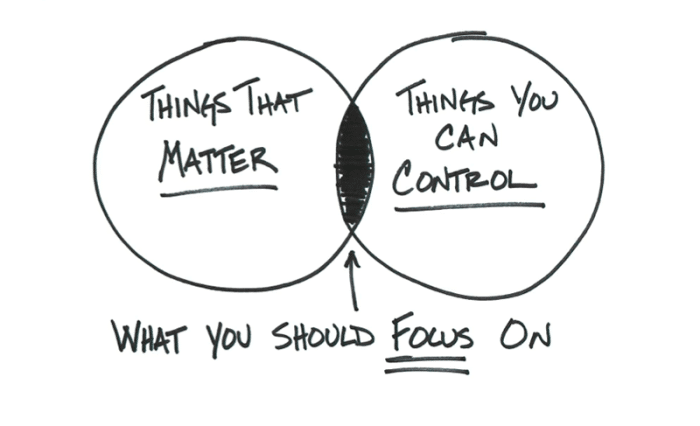Why You Have to Buy Cheap Stocks in 2024
Have you been to the casino lately?
I haven't, yet I gamble with my entire life savings nearly every single day.
I'm not talking about online poker or horse racing -- I'm talking about gambling with stocks. And, instead of buying the lottery-type stocks that you think I'm risking my money on, I'm playing a game of chance that I'm virtually guaranteed to win the longer I keep playing.
Let me explain...
Don't Ignore Lady Luck
Investing is a game of chance. As an investor, you can dramatically boost your returns and limit your downside by playing that game well. This is something that those who have already requested a free net net stock checklist already know.
Michael Mauboussin of Legg Mason says that you can order activities on a scale from those that have outcomes that are completely based on skill, and those that are completely based on luck. Building handcrafted furniture, for example, comes very close to being an activity with an outcome that's totally based on skill. The way a carpenter holds his blade, measures the pieces for his cabinet, shapes the arch of the cabinet's mantle, and layers the textures of wood within the final piece all have a major effect on the finished product, the outcome. https://www.youtube.com/embed/TLQ6o_Jx0Rs
The outcome of playing the lottery, on the other hand, is nearly totally based on chance. There is little that you can do to influence the eventual outcome -- unless you live in some crooked 3rd world country. It doesn't matter what numbers you pick, what day you buy on, or even really how many tickets you buy -- your eventual outcome is unlikely to change much no matter what you do.
Investing falls somewhere between those two extremes. Investing is definitely not purely a game of chance, since there are master investors who have beaten the market again and again over a large number of years. Accounting for their success as pure chance gets into absurd levels of probability.
On the other hand, investment returns are also somewhat divorced from the amount of skill you bring to the table. While many bright investors want to think otherwise, investing does not correlate 1-to-1 with the amount of effort or intelligence you put into picking your investments. It's just not the case that losses will stop completely if you bring enough skill to your investment operation -- and it's certainly not the case that going to an Ivy League school will help you nail down 50% annual returns. Even Warren Buffett, likely the top investor in the world, recently lost close to $1 billion on Energy Future Holdings.
Luck, or chance, is a fundamental aspect of investing and one that you have to accept if you're going to succeed.
Think you have the perfect investment thesis?
Think again.
Any number of unknowns could blindside you, derailing what you thought was your gravy train to Profitville. It's these unknowns, the things that you can't control or anticipate, that prevents investing outcomes from perfectly reflecting investing prowess. Any of these unknown factors could, and often do, effect your eventual outcomes.

Chance does not handicap your ability to make exceptional investment returns, however. You just have to have the right attitude towards investing.
Since so many things are outside of your control, you really have to spend your time focusing on the things that you can control that will have a big impact on your eventual returns. Understanding this fact and how to use it to your advantage is key to playing this game of chance well. It really comes down to setting your portfolio up with the best odds of high net returns.
Focus on Controlling the Value Investing Process
Ironically, it's absolutely critical to your success as an investor to stop focusing on achieving high returns. You can't directly control the return you eventually achieve, since chance plays a large role in achieving that return, but you can focus on making the best investment decisions possible which will greatly influence your eventual outcome. That last sentence is extremely important, so read it over one more time. Just focus on the investment process itself, and the returns will come.
Focusing on nailing down a certain yearly return... +25%, +30%, +40%... will likely just distract you and lead you to make serious mistakes. Some of this is psychological. Suppose you aim hit a return that's 5% above the market every single year. If you start falling behind the market, you'll start to feel a psychological pull -- a bit of self-induced pressure -- to start taking bigger risks. You might not stick with companies that have low debt ratios, for example, or you might start placing bets on stocks the investment community thinks have a lot of promise. More risk, though, erodes returns over time. Instead of bring in that large windfall you expect you could see your invested capital cut in half.
I don't think you should stop aiming for high returns. Just don't make those returns your focus. Instead, your focus should be on improving, refining, and better executing your value investing strategy or process. In other words, aim to continuously refine and improve both your investment strategy and your process for picking stocks then let your excellence in those areas generate outstanding returns.
As a value investor, you know that there are a number of ways to implement a great investment strategy. But by far the best, in my opinion, is to fine tune a mechanical value investing strategy -- buy a basket of cheap stocks and then hold those stocks until some sell criteria is met.
How to Gamble Your Life Savings Like a Pro
Why cheap stocks? Simple: Cheap stocks have been statistically shown to outperform the market over the long run.
The best gamblers in the world know how to exploit systemic anomalies. The best gamblers in the world can look at a system, see the weaknesses inherent in it, and then exploit those weaknesses through well-placed bets. A poker player, for example, has to understand the probabilities of getting certain hands and then act on those probabilities, placing sizeable bets when he's likely to be right.
He won't be right all the time, however -- that's where the element of chance comes into play. But, he will be right more often than not... so the more bets he makes the more likely he is to collect his fair share of profit over time based on the strategy he's using.
Bringing it back to value investing, investing in cheap stocks means taking advantage of a systemic anomaly in the market place. Cheap stocks, as a group, outperform their peers on average over the long run. So long as you invest in a large enough number of cheap stocks, repeatedly placing bets on cheap stocks will help you collect your fair share of profit from that market anomaly.
How to Improve Your Value Investing Process to Improve Your Returns
Cheap stocks provide great returns as a group, whether you're looking at low price to PE, low price to book value, low price to cash flow, low price to dividends, or low price to sales. Any of these strategies will produce returns in the mid-to-high teens, which is a great deal more than the stock market indexes themselves have returned over the past 100 years.
To make sure you capture your fair share of those returns, or even push your average annual gains well above those figures, you'll want to improve two key areas in the investment process: psychological biases and implementing your strategy.
You should be looking to eliminate any inefficiencies of biases in your investing process so you can actually achieve the returns associated with your particular strategy. Emotional and cognitive biases often trip up investors. Failing to invest in a falling stock due to fear, for example, is a great way to erode your investment returns.
Start eliminating your own psychological errors early because shaping your own temperament is not easy. One book that helped me tremendously was Daniel Goleman's Emotional Intelligence. David Dreman's books are also a great way to gain a large picture perspective that is invaluable during market turmoil.
The second area you should aim to improve is in your chosen strategy and how you implement it. If you pick the best performing investing strategy then you'll achieve much higher returns. That's why I've opted for Benjamin Graham's classic net net stocks strategy -- it's the ultimate cheap stocks strategy. No other value investing strategy can match its long verified history of exceptional returns. While other strategies based on cheap stocks can yield returns in the high teens, Benjamin Graham's net net stocks strategy is the only strategy I know of to consistently perform in the 25-35% per year range over the long run.
But even this strategy can be improved. While net net stocks in general have great returns, not all of them work out. To improve my own investment strategy, I've taken to using additional criteria to weed out the lower probability stocks, thereby cutting out a lot of the under-performers from my portfolio. What I'm left with is a group of cheap stocks that have a much stronger probability of achieving fantastic returns.
Take a look at what other factors have been associated with outperformance. Within the world of net net stocks, the stocks that are the smallest, the cheapest relative to NCAV, and have the least amount of debt in relation to equity have consistently outperformed. That's why those stocks make up the bulk of my portfolio.
I'm constantly looking for other factors that help me distinguish the best of the best investments. You should be too if you want world-class investment returns.
Are You Gambling Your Way to Profits?
You should be -- so long as you gamble intelligently by exploiting systemic anomalies. Since you can't eliminate the impact of chance altogether from your investment returns, focus on the things you can control by fine-tuning your investment process, including your own psychological makeup. Investing is simple, and taking this route to investment returns will virtually ensure that your long term record is fantastic.
Take the first step towards achieving 25%+ on average per year. Get a free net net stock essential guide. No obligation, no catch -- just our free net net stock essential guide you can use. Enter your email address in the box below.






